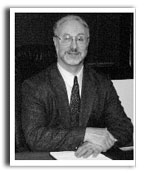In Memory of Charles K. Rowley: Entrepreneur of Ideas
 Our former professor, Charles K. Rowley, passed away this weekend after a long and prolific career as a scholar and teacher.
Our former professor, Charles K. Rowley, passed away this weekend after a long and prolific career as a scholar and teacher.
Professor Rowley was a passionate teacher, as anyone who sat in his classroom will attest. He was also a deep scholar of public choice, and he worked tirelessly to shape the contours of the field, to advance those frontiers, and to stake claims to this work in the name of Virginia School scholars, particularly Jim Buchanan and Gordon Tullock.
To that end, Charles was a prolific editor of symposiums, anthologies, and encyclopedias that serve to gather and communicate the main dimensions of public choice. Major examples of this include his two-volume Encyclopedia of Public Choice (2003), The Political Economy of Rent Seeking (1988), and the monumental, ten-volume set, The Selected Works of Gordon Tullock (2006, Liberty Fund). For over a decade, Charles also served alongside Bob Tollison as the Co Senior Editor of the journal, Public Choice.
Charles wrote scores of articles and books of his own across many areas, not least of which include constitutional and industrial political economy. He founded The Locke Institute in the early 1990s, through which he published dozens of scholarly books and edited The Shaftesbury Papers, yet another offspring of his tireless inventiveness as a scholar.
Over at Cafe Hayek, Don Boudreaux (Rowley’s colleague at GMU) points us to a brief passage from 1987 that illustrates Rowley’s feisty criticism of bad ideas and defense of good ones. In this case, Rowley’s target is Keynesian interventionism to promote full employment and price stability, which Buchanan and other Virginia scholars had shown would instead systematically lead to high unemployment, inflation, and ever rising deficits.
Newly graduating economists of post-Second World War vintage, knew no other macroeconomics that that of Keynes. Weaned on Samuelson’s Economics, they carried the Keynesian interventionist message out of the academy and into government, business, and, especially, the media. By 1960, such Keynesians constituted an influential ‘intelligentsia’ within the Democratic Party. They provided the intellectual justification for a Great Society programme of fiscal prodigality, which the US Congress was independently eager to broker. The experiment failed, and Lyndon Johnson decided not to seek a second term. Although the failure edged the Keynesian research programme towards a state of crisis, the budget deficits, which were its outward manifestation, had come for a longer stay.
The passage reflects our framework in Madmen: that ideas can shape institutions which in turn shape peoples incentives, for better or worse. As students of Rowley’s in the early 1990s, Wayne and I were shaped by him. We applaud and admire his example as a consummate entrepreneur of ideas.
Note: updated with photo and link to bio.

2 thoughts on “In Memory of Charles K. Rowley: Entrepreneur of Ideas”
Comments are closed.